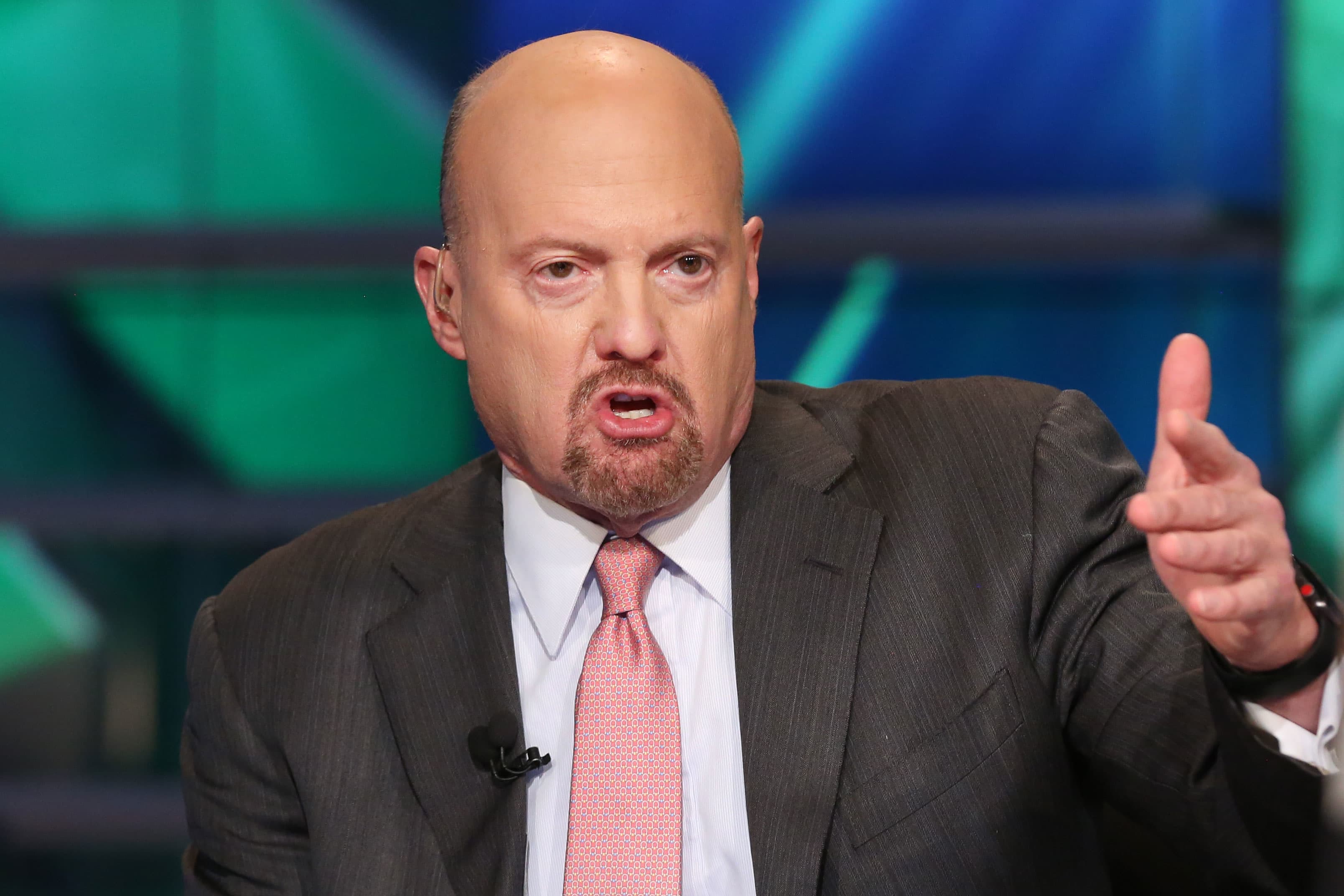CNBC’s Jim Cramer on Monday criticized the United States’ response to the coronavirus, saying that other nations across the world have been exemplars of how to keep deaths from the disease low.
“I’m trying to figure out what kind of disaster that our country has had that’s ever been as bad as this that’s been self-inflicted,” Cramer said on “Squawk on the Street.”
The “Mad Money” host pointed to how the worldwide Covid-19 outbreak has transpired in countries such as South Korea, Japan,and Taiwan — all of which have fewer than one coronavirus death per 100,000 people, according to Johns Hopkins University. He also referenced Vietnam, which has no recorded deaths linked to Covid-19.
The U.S., by contrast, has 42.95 deaths per 100,000 people, according to Johns Hopkins, and leads the world in overall confirmed cases with nearly 3.8 million and total fatalities of over 140,500 people.
“Those are big, big countries, and they’re faring so much better,” Cramer said, contending their adoption of face masks and development of contact tracing programs have been key reasons for containing the virus. “They’re also disciplined and we’re unruly. This may go down as us being, I’d say, a lesser developed country versus those countries.”
America’s efforts to institute contact tracing systems have been a particular disappointment, Cramer said, describing them as “out of the picture in our country.”
Contact tracing involves figuring out who an infected person has been in close proximity to and then getting in touch with those people in order for them to take proper precautions. Public health experts say it’s an important strategy to prevent infections from growing into large-scale outbreaks.
Dr. Anthony Fauci, the nation’s top infectious disease expert, told CNBC last month that coronavirus contact tracing in the U.S. was “not going well.”
Coronavirus cases and hospitalizations in the U.S. have been rising in recent weeks following the reopening of local economies and the relaxation of earlier mitigation efforts. Deaths in certain parts of the country also have been ticking upward, although experts say an increased understanding of how to treat the virus — in addition to younger people becoming infected — should mean mortality rates do not reach levels from earlier in the pandemic.
State governors and other U.S. leaders in Washington, such as CDC Director Dr. Robert Redfield, have been intensifying their calls for Americans to wear masks as a way to help slow transmission of the virus. Some states have adopted mandatory policies.
“I think if we could get everybody to wear a mask right now I think in four, six, eight weeks we could bring this epidemic under control,” Redfield said last week.
President Donald Trump has been mask-adverse.
However, Trump wore a mask during a public visit to Walter Reed National Military Medical Center on July 11, after long-resisting bipartisan calls to lead by example that masks are important to reducing Covid-19 transmission.
During a May visit to a Ford plant in Michigan, the president was seen on the factory floor without a mask despite state law and company policy requiring it. Ford issued a statement saying Trump wore a mask during a private meeting at the plant but later took it off.
